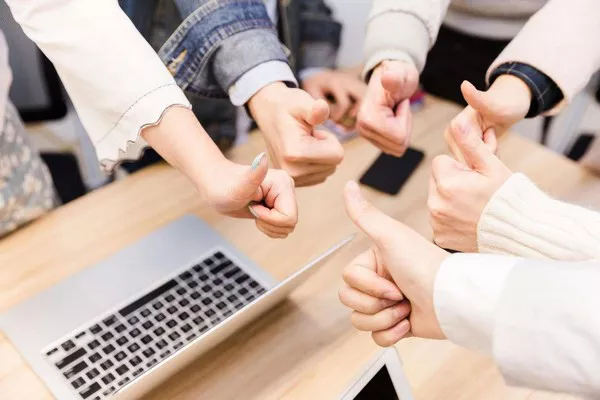Friendships are essential to our social and emotional well-being, providing support, companionship, and a sense of belonging. Yet, despite their importance, not all friendships last forever. Over time, people drift apart or relationships become strained. As a psychologist, it’s important to explore the dynamics behind why and how most friendships end. By understanding the psychological factors at play, we can gain insights into the common reasons friendships dissolve and how to navigate the process in a healthy way.
The Lifespan of Friendships
Friendships, like any other relationship, have a natural ebb and flow. Research has shown that friendships tend to follow a pattern of growth, stability, and sometimes decline. In the initial stages, friends bond over shared experiences, interests, and mutual admiration. Over time, the friendship may stabilize as both individuals develop a routine of communication and trust. However, as life circumstances change—such as career shifts, family obligations, or moving to a new location—the stability of the friendship can be challenged.
One of the key reasons friendships end is the mismatch between expectations and reality. As friends grow older, their needs, interests, and priorities may shift. These changes can lead to a breakdown in communication and understanding, often causing the friendship to slowly erode without any major conflict.
Common Reasons Friendships End
There are several common psychological and situational factors that lead to the end of friendships. Below are the most prevalent reasons:
1. Life Changes and Shifts in Priorities
One of the most common reasons friendships end is due to changes in life circumstances. When people experience significant transitions—such as getting married, starting a family, moving to a new city, or changing careers—their social needs and available time often change as well. Friends who once had ample time to connect may find themselves drifting apart as their schedules and priorities shift.
These life changes can create an emotional distance between friends, especially if one person feels neglected or left behind. For example, when one friend becomes a parent, they may naturally spend less time socializing, while the other friend may feel disconnected from this new stage of life. While these changes are often not intentional, they can lead to feelings of abandonment or frustration, ultimately causing the friendship to fade.
2. Conflict and Unresolved Tension
Conflict is an inevitable part of any relationship, but how it is handled can determine whether a friendship survives or ends. When conflicts arise, whether due to differing opinions, jealousy, or personal insecurities, friends who fail to address the issue openly and honestly may experience growing resentment. Over time, unresolved tension can build up, leading to passive-aggressive behavior, avoidance, or outright hostility.
Psychologically, conflict avoidance can lead to deeper emotional strain. Some people may fear confrontation, worrying that addressing the problem will result in further damage to the relationship. Unfortunately, this often leads to a slow and silent dissolution of the friendship. Small issues that go unspoken eventually turn into insurmountable barriers, making it difficult for the friendship to recover.
3. Emotional Imbalance
Friendships, like all relationships, require a degree of reciprocity. Both parties must feel valued, heard, and supported. When one friend consistently takes more than they give—whether emotionally, financially, or through time and energy—the friendship can become unbalanced. One person may feel drained or unappreciated, leading to frustration and eventual disengagement.
This emotional imbalance is particularly common in friendships where one person is going through a challenging time and relies heavily on the other for support. While it’s natural to want to be there for a friend in need, over time, this dynamic can lead to burnout, where one person feels overwhelmed by the constant demands of the other. If not addressed, this imbalance can result in the gradual breakdown of the friendship.
4. Growing Apart Over Time
Sometimes, friendships simply dissolve because people grow apart. Interests, values, and lifestyles evolve, and friends who were once inseparable may find themselves on different paths. This type of friendship ending is often gradual and non-confrontational. Both individuals may recognize that they no longer have as much in common, leading to a slow reduction in communication.
This type of drift is particularly common in friendships formed during specific life stages, such as school or early adulthood. As people move through different phases of life, they may naturally gravitate toward new friendships that align with their current interests and values. In these cases, the end of the friendship is not necessarily rooted in conflict, but rather in the natural progression of personal growth.
5. Toxic or Unhealthy Dynamics
Some friendships end because they become toxic or unhealthy. Toxic friendships are characterized by manipulation, control, or emotional abuse. In these relationships, one person may feel constantly criticized, belittled, or manipulated by the other. Over time, these negative interactions can erode self-esteem and emotional well-being.
Ending a toxic friendship can be emotionally challenging, especially if the relationship has been long-standing. However, recognizing the signs of a toxic dynamic and taking steps to distance oneself is often necessary for emotional health. Setting boundaries or cutting ties altogether may be the best course of action to protect oneself from further harm.
See Also: How to Maintain Online Friendships?
The Role of Communication in Ending Friendships
One of the key psychological factors in how friendships end is the role of communication—or lack thereof. Friendships that dissolve due to unresolved issues, misunderstandings, or unmet expectations often suffer from poor communication. When friends fail to express their feelings, whether due to fear of conflict or avoidance, the relationship is more likely to deteriorate.
Open and honest communication is essential for maintaining strong friendships. Addressing concerns directly, whether about changing priorities, emotional imbalances, or conflict, can help prevent misunderstandings from escalating into irreparable damage. In contrast, avoiding difficult conversations often leads to a buildup of resentment and emotional distance.
In cases where a friendship has reached the point of no return, communication still plays a critical role. Expressing your feelings and acknowledging the reasons for the friendship’s end can provide closure for both parties. While these conversations can be uncomfortable, they offer a sense of resolution and understanding, allowing both individuals to move on without lingering doubts or regrets.
The Psychological Impact of Ending a Friendship
The end of a friendship can have significant emotional and psychological effects, depending on the nature of the relationship and the reasons for its dissolution. People often experience a range of emotions, including sadness, guilt, relief, and even grief. The loss of a close friend can feel similar to the loss of a romantic relationship, as it represents the end of a deep emotional bond.
Grieving the Loss of a Friendship:
Grieving the end of a friendship is a natural and healthy process. Just as with romantic breakups, people may need time to process their feelings and come to terms with the loss. It’s important to allow oneself to experience these emotions rather than suppressing them. Over time, this process can lead to healing and personal growth.
Self-Reflection and Growth:
The end of a friendship can also serve as an opportunity for self-reflection. It allows individuals to examine their own role in the relationship and consider what they’ve learned about themselves. This reflection can lead to personal growth and better understanding of the types of friendships that are worth cultivating in the future.
Conclusion
Friendships, like all relationships, are subject to change. While some friendships last a lifetime, others naturally come to an end due to life changes, emotional imbalances, or unresolved conflict. Understanding the psychological factors that contribute to the dissolution of friendships can help individuals navigate the end of these relationships with greater clarity and emotional resilience.
Whether a friendship ends through a gradual drift or a more abrupt conflict, it’s important to acknowledge the feelings that come with the loss and engage in healthy communication where possible. By recognizing the signs of a friendship nearing its end and reflecting on the lessons learned, individuals can continue to grow and form meaningful connections in the future.
Related topics:




















